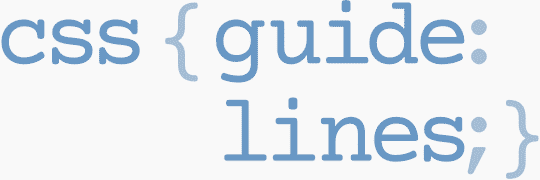By Harry Roberts
Harry Roberts is an independent consultant web performance engineer. He helps companies of all shapes and sizes find and fix site speed issues.
Written by Harry Roberts on CSS Wizardry.
N.B. All code can now be licensed under the permissive MIT license. Read more about licensing CSS Wizardry code samples…
Last week Pascal Raabe got in touch with me asking me to answer a few questions on the relevance and importance of formal education (i.e. a university degree) in the design world. My answer leaned more toward the web design/development side of things, but it’s all much the same. He was happy with the feedback to his questions and also allowed me to post the Q&A here because I thought it was quite interesting:
I’m currently writing my dissertation in which I explore the relevance of design education in the knowledge economy and an increasingly digital future.
P.R. I remember when I first came across CSS Wizardry, I was very impressed. I assume you opted not to go to uni and devised your professional career yourself and as far as I can see, very successfully so.
Thanks for the kind words. And yeah, I did opt to skip university and go straight into the industry as soon as I could.
P.R. I would be interested to hear your opinion about design education. Do you think formal design education is still relevant? Why did you choose not to go to university? Do you feel that you somehow missed out on aspects of formal education that go beyond teaching (such as social life, time to experiment, etc.)?
I personally would (and actively do) suggest to people that, before considering enrolling in formal education in a web design/development field, they consider the benefits they would reap from the money it would cost.
The reasons for this are generally that a) university is very expensive b) something such as web development is so accessible and learnable without a formal course that you can very easily learn the course content yourself for a fraction of the price (the cost of a few good books) or c) learn better, more current topics. Universities, where web development is concerned, are notoriously behind-the-times. I’ve heard countless horror stories, including the most recent from someone whose lecturer is teaching table based build!
When the time came for me to decide on uni or industry it was a pretty simple decision. Several factors were taken into account but the most resounding were my then tiny web presence already gaining industry recognition and my own first-hand view of just what the courses were offering. Every clue at that time pointed to me having a wider knowledge, understanding and foothold than the graduates of the courses I was considering taking. As big-headed as that sounds it is unfortunately the truth; at 17 I had managed to teach myself more than most universities teach their students over three to four years.
The final deciding factor in the move was a simple test of sorts. I sent two applications to two universities and to two web development agencies. Both agencies responded, and the first one I contacted offered me the job at the interview. That agency was Sense Internet; an award-winning big-hitter and quite a known name. To me the choice was clear—go to learn what I already knew over four years at an expense to myself, or start out full-time industry life at Sense…
It was a few months after starting at Sense that I discovered Newcastle uni (one of the two I applied to) was using my Web Design+ document to teach their students. I almost ended up being on a course that were teaching using my material.
So yeah, for those reasons I (gladly) decided against university.
As far as missing out goes, it’s a double edged sword. With uni comes a lot of socialising, with working at a respected agency comes credibility and cash. Bearing in mind I am still only 20 I guess I still am missing out, but I don’t see it that way. Being in the industry has allowed me to move even further ahead, doing what I love and getting paid for it really is great in my opinion.
With regards relevance, I’d say whilst not wholly irrelevant, a design/development degree is far from relevant. By that I guess I mean that relevance is probably not the best way of measuring it. It’s more necessity, and as far as I’m concerned it is definitely not necessary.
P.R. Judging by your portfolio and the informed commentary you put out there in your articles and on twitter, I’d say you’re probably better educated than most design school graduates. How did you acquire these skills and knowledge? Were there any obstacles you had to overcome? Do you think university (or design school) can prepare students adequately for the professional world?
Thanks! I got these skills through genuine interest, lots of experimenting, stacks of reading and a lot of hard work. From the age of 15 my days would usually consist of get up, go to school, go to work, come home and tinker on my computer ’til the early hours. My PC in my room didn’t actually have an Internet connection either, so I’d save articles and tutorials onto a USB stick to read in my room later.
Two years of this and I’d decided I didn’t need university. The key was that I was learning about the industry as it happened—things were always up-to-date. This is where degrees and formal education are lacking in my opinion; you can’t plan the content of a course three years before it results in graduation. Three years in Internet years is such a long time it’s untrue. That’s why people are still being taught table-based development.
I definitely don’t think university can prepare you professionally, as it’s just so far behind. As soon as you graduate and enter the industry a lot of people will have to disregard and relearn aspects of their education right away.
P.R. Lastly, what is your view of the ‘professional world’? Many employers still require degrees, why do you think that is?
I think the kind of employers who might ask for a degree are probably the type of employer who don’t actually understand the technical side of web development. An employer who can look at, and appreciate and recognise, the talent of a web developer will know from that alone how good they are. Someone who doesn’t know what they’re looking for can always quantify their skills based on whether they have a degree or not. Whether this is a fair or accurate representation is another question entirely.
In summary I personally think that you really don’t need to go to university for web design/development. Over two-years of working in my room (i.e. alongside a full-time activity), at the cost of one or two good books I managed to go above and beyond what I could have spent three to four years learning full time at the expense of tens-of-thousands of pounds learning.
Teach yourself at your own pace and learn what you want, when you want. Keep up to date, buy a few good books, get on Twitter, read articles and have a genuine passion and interest and you’ll do a better job than any university will do.
As for the social aspect, sure I missed a few years of partying mid-week and eating shop-brand beans-on-toast, but I did gain a wealth of knowledge, amazing friends, some exciting, real-world work and moreover a professional reputation. All before other people my age are even graduating yet.
Forget uni, teach yourself, learn more, have fun.
Harry
N.B. All code can now be licensed under the permissive MIT license. Read more about licensing CSS Wizardry code samples…
Harry Roberts is an independent consultant web performance engineer. He helps companies of all shapes and sizes find and fix site speed issues.

Hi there, I’m Harry Roberts. I am an award-winning Consultant Web Performance Engineer, designer, developer, writer, and speaker from the UK. I write, Tweet, speak, and share code about measuring and improving site-speed. You should hire me.
You can now find me on Mastodon.


I help teams achieve class-leading web performance, providing consultancy, guidance, and hands-on expertise.
I specialise in tackling complex, large-scale projects where speed, scalability, and reliability are critical to success.